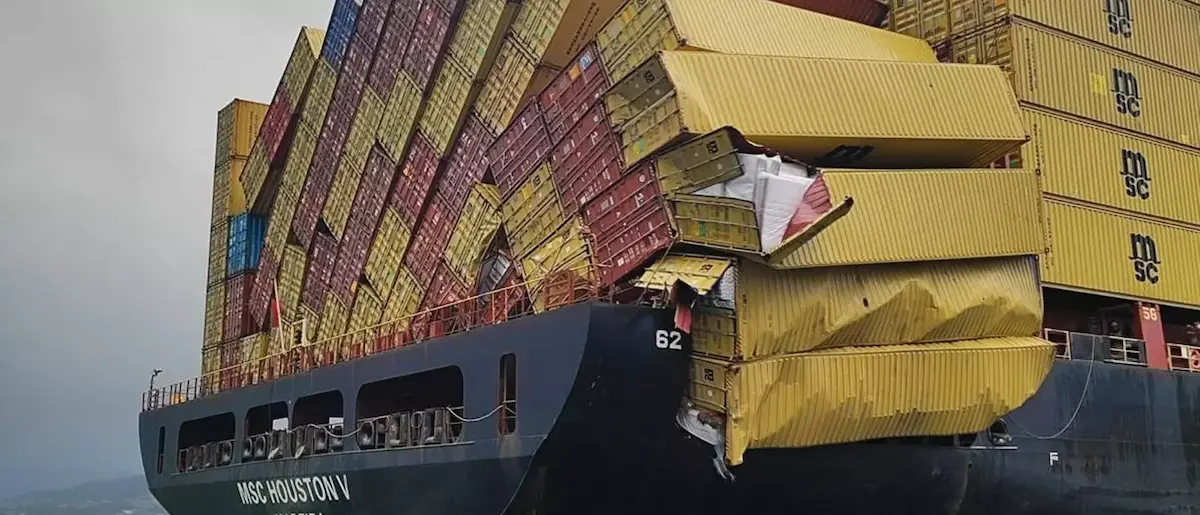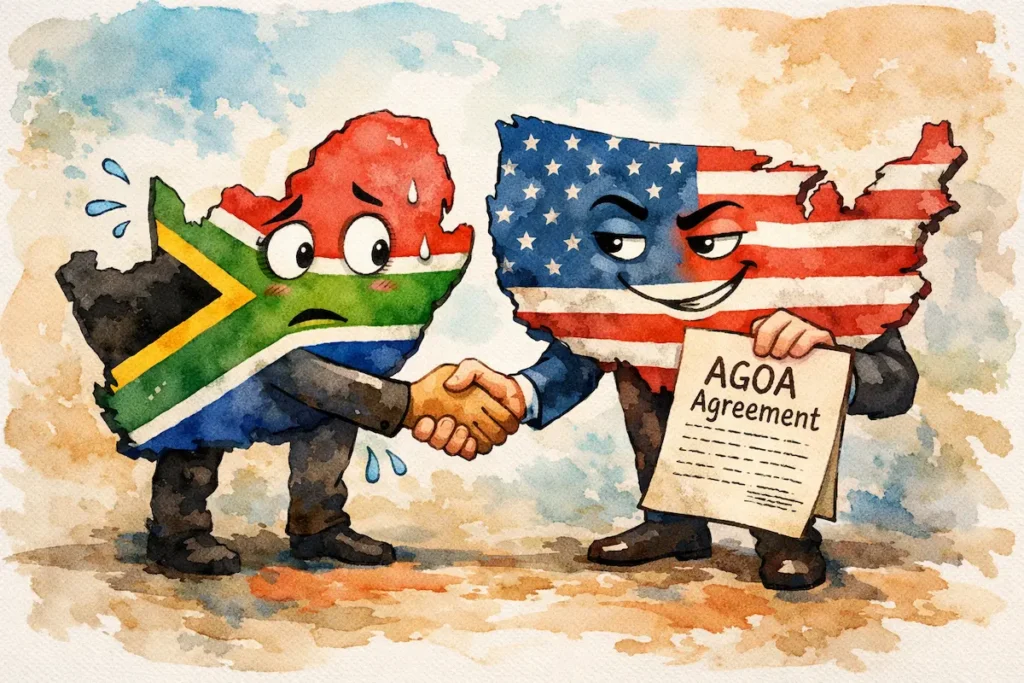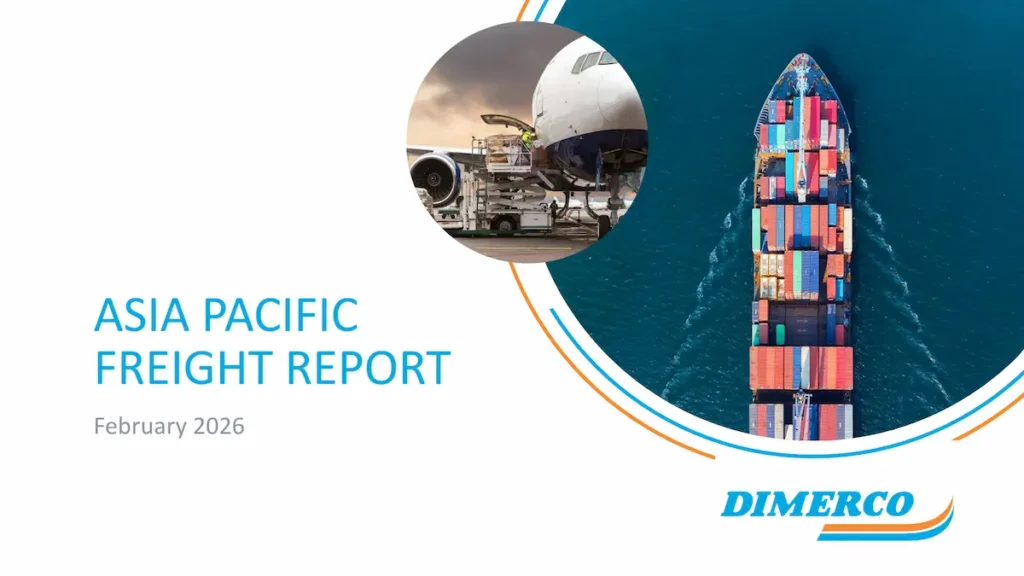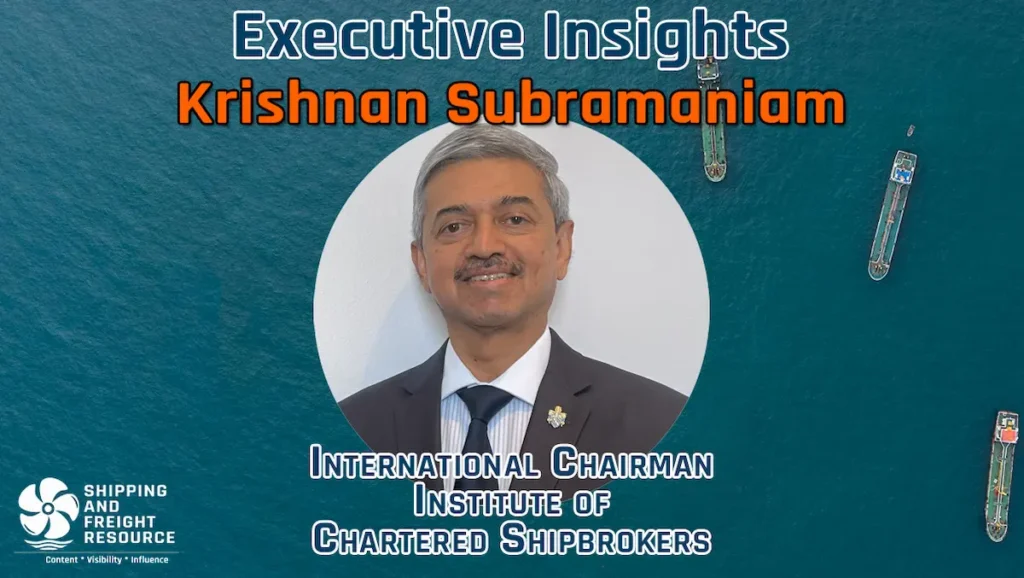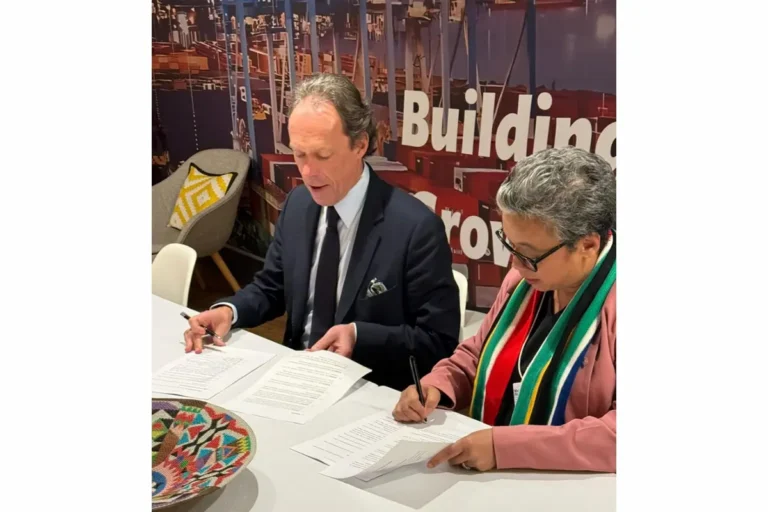MSC Houston V a 4,432 TEU capacity Portuguese flagged container ship had to make an emergency call at Vigo to take care of container and ship damage due to inclement weather and rough seas on its journey from Piraeus, Greece to Liverpool..
The ship operated by MSC, the world’s largest container shipping line said to be part of MSC’s NWC UK service to/from Greece & Türkiye service (NC512A), has reportedly lost several containers overboard and has a collapsed stow on board with several containers toppled across the aft deck..
As per reports, the ship is currently docked at the Guixar berth to remove the damaged containers and conduct an inspection of the damage and the way forward, an exercise expected to take several days..
The images from Europa Sur show significant damage to containers and the ship with over 15 containers reportedly lost at sea and several others completely destroyed, ripped apart, precariously perched, and hanging over the stern to what is left of the lashing systems..
This slideshow requires JavaScript.
The Europa Sur is reporting that according to Port sources consulted, this is a possible defect in the container stowage..
“These sources indicate that to save time and costs, “they use open stowage” which puts the cargo at risk in the event of rough seas, as has happened this time due to Storm Martinho” reports Europa Sur..
“By not closing the stowage, what they intend is to keep the ship in port for as little time as possible, these sources indicate. Unless the insurance companies intervene, they will continue to act this way” the publication reports..
To me, it is a bit premature to point a finger at shipping lines and stevedores before a proper determination can be made..
Container shipping and safety
Container shipping, while statistically safe, still comes with risks that no amount of planning can entirely eliminate, especially when it relates to nature..
When we look at the World Shipping Council’s 2024 update on containers lost at sea, the average number of containers dropped to 221 containers out of approximately 250 million transported (around 0.0000884 %).. Out of the containers lost about 33% have been recovered..
The WSC reports that “this represents the lowest losses since the start of the survey in 2008, and a significant improvement on the previous lowest-ever loss of 661 containers in 2022, a significant improvement from the alarming spikes recorded in past years, such as during the 2020-21 period when over 3,000 containers were lost in a single year“..
These numbers indicate a positive trend of increasing container safety, as well as improved navigational safety and vessel routing..
However, the MSC Houston V incident also reminds us that despite these improvements, nature still holds the trump card..
The downside – environmental and economic consequences
The immediate reaction to incidents like these are typically focused on losses—cargo value, insurance claims, and service disruptions.. But there’s a darker, longer-lasting impact: the environmental toll..
Each container lost doesn’t just vanish, it becomes part of the growing marine debris crisis.. Depending on the cargo, it could be a harmless container of textiles or a hazardous materials like nurdles that pollutes marine ecosystems..
Economically, for cargo owners, this represents another headache in the already fragile global supply chain while for shipping lines, this raises questions around navigational planning, real-time weather analytics, and risk mitigation..
The upside: transparency and industry response
To the industry’s credit, there’s a growing culture of transparency and accountability.. The World Shipping Council and regulatory bodies like the IMO have intensified efforts around safety and reporting..
The WSC’s continuous data tracking and updated safety recommendations are helping shipping lines understand the root causes of such incidents, from stack weight imbalances to improper lashing to routing decisions during extreme weather events..
It’s not a question of eliminating all container losses which may be impossible.. But reducing frequency and impact through smart technology, better forecasting, and rigorous compliance..?? That’s a battle worth fighting..
Conclusion
The MSC Houston V event is not a one-off freak accident and is neither the first nor will be the list of such incidents.. It is a reminder, a signal that the shipping industry must continuously evolve to meet the challenges posed by increasingly volatile climate changes, growing cargo volumes, resultant bigger ships, and events like parametric rolling that are still to be fully understood..
Yes, container shipping is safer than ever and incidents are fewer.. But each image of a broken container like the above or a wild sea crash tells a deeper story about the balance we are yet to master between operational efficiency and the fury of the elements..

